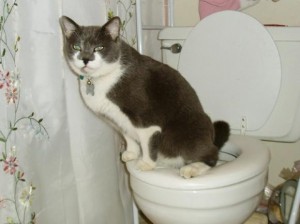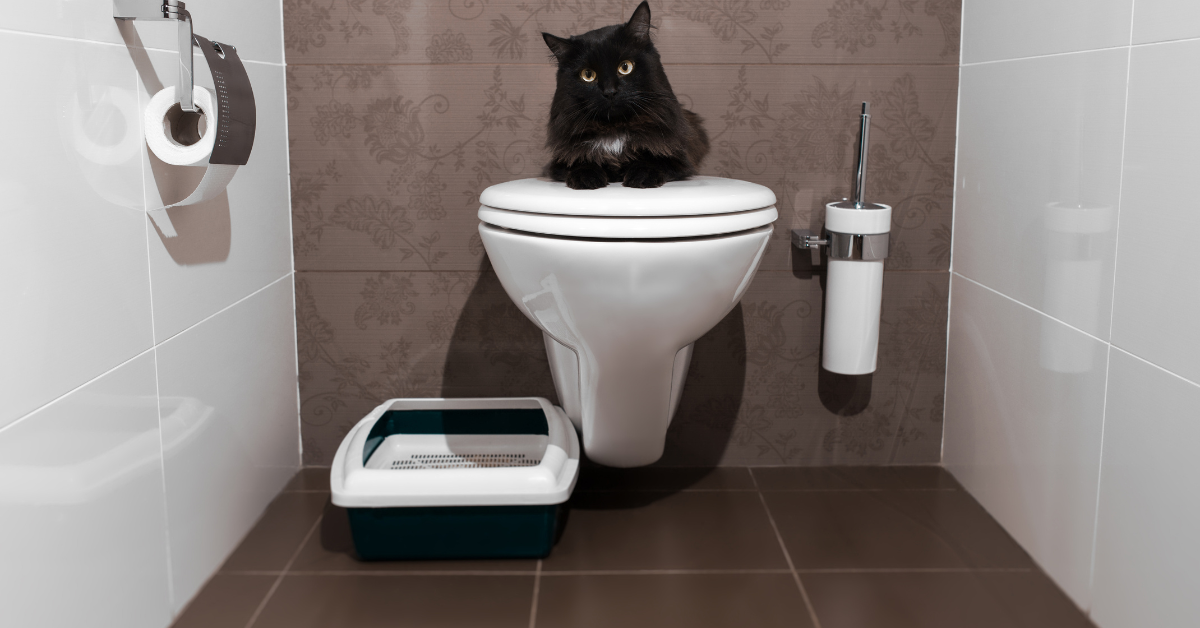Never Flush Cat Poop Down Your Toilet - Safeguard Your Plumbing System
Never Flush Cat Poop Down Your Toilet - Safeguard Your Plumbing System
Blog Article
The article author is making several great pointers regarding Can You Flush Cat Poo or Litter Down the Toilet? as a whole in this content below.

Introduction
As feline proprietors, it's essential to be mindful of exactly how we take care of our feline friends' waste. While it may appear practical to flush pet cat poop down the commode, this method can have harmful effects for both the setting and human health.
Environmental Impact
Flushing feline poop presents unsafe microorganisms and bloodsuckers into the water supply, posturing a considerable threat to marine environments. These impurities can adversely impact aquatic life and compromise water quality.
Health and wellness Risks
Along with environmental concerns, purging feline waste can also position health risks to human beings. Cat feces may consist of Toxoplasma gondii, a parasite that can create toxoplasmosis-- a potentially serious illness, specifically for expectant ladies and people with damaged body immune systems.
Alternatives to Flushing
Fortunately, there are more secure and extra liable methods to get rid of pet cat poop. Consider the adhering to choices:
1. Scoop and Dispose in Trash
The most usual approach of dealing with cat poop is to scoop it right into a biodegradable bag and throw it in the trash. Make certain to make use of a committed trash scoop and throw away the waste without delay.
2. Use Biodegradable Litter
Opt for eco-friendly cat litter made from materials such as corn or wheat. These clutters are eco-friendly and can be safely taken care of in the trash.
3. Hide in the Yard
If you have a lawn, think about hiding feline waste in a designated location far from vegetable yards and water sources. Make sure to dig deep adequate to avoid contamination of groundwater.
4. Mount a Pet Waste Disposal System
Purchase a pet dog waste disposal system particularly created for cat waste. These systems utilize enzymes to break down the waste, decreasing smell and environmental effect.
Final thought
Accountable family pet possession extends beyond supplying food and sanctuary-- it additionally involves correct waste administration. By refraining from flushing cat poop down the bathroom and going with alternate disposal approaches, we can lessen our ecological footprint and protect human health.
Why You Should Never Flush Cat Poop Down the Toilet
A rose by any other name might smell as sweet, but not all poop is created equal. Toilets, and our sewage systems, are designed for human excrement, not animal waste. It might seem like it couldn’t hurt to toss cat feces into the loo, but it’s not a good idea to flush cat poop in the toilet.
First and foremost, assuming your cat uses a litter box, any waste is going to have litter on it. And even the smallest amount of litter can wreak havoc on plumbing.
Over time, small amounts build up, filling up your septic system. Most litter sold today is clumping; it is made from a type of clay that hardens when it gets wet. Ever tried to scrape old clumps from the bottom of a litter box? You know just how cement-hard it can get!
Now imagine just a small clump of that stuck in your pipes. A simple de-clogger like Drano isn’t going to cut it. And that means it’s going to cost you big time to fix it.
Parasitic Contamination
Believe it or not, your healthy kitty may be harboring a nasty parasite. Only cats excrete Toxoplasma in their feces. Yet it rarely causes serious health issues in the cats that are infected. Most people will be fine too if infected. Only pregnant women and people with compromised immune systems are at risk. (If you’ve ever heard how women who are expecting are excused from litter cleaning duty, Toxoplasma is why.)
But other animals may have a problem if infected with the parasite. And human water treatment systems aren’t designed to handle it. As a result, the systems don’t remove the parasite before discharging wastewater into local waterways. Fish, shellfish, and other marine life — otters in particular — are susceptible to toxoplasma. If exposed, most will end up with brain damage and many will die.
Depending on the species of fish, they may end up on someone’s fish hook and, ultimately on someone’s dinner plate. If that someone has a chronic illness, they’re at risk.
Skip the Toilet Training
We know there are folks out there who like to toilet train their cats. And we give them props, it takes a lot of work. But thanks to the toxoplasma, it’s not a good idea.

We were made aware of that article on How to Dispose of Cat Poop and Litter Without Plastic Bags through a friend on a different web address. Enjoyed reading our blog entry? Please share it. Let someone else discover it. Thanks a lot for your time. Visit us again soon.
Article Report this page